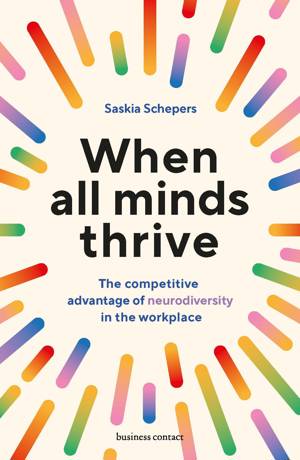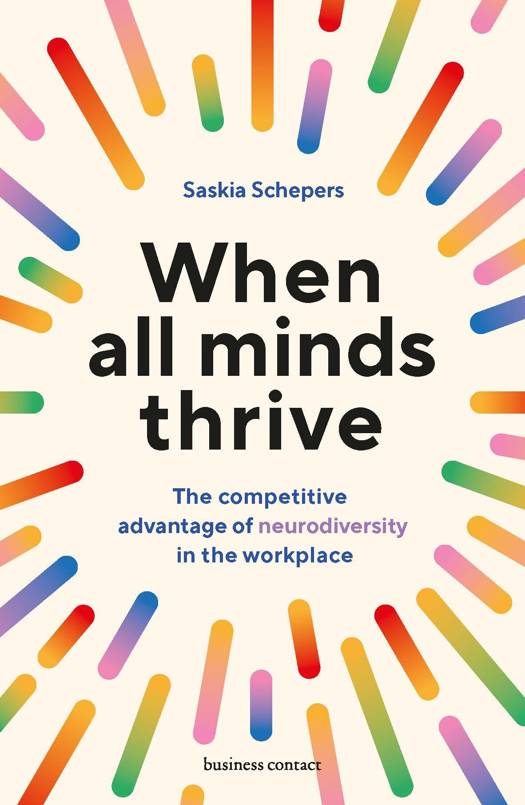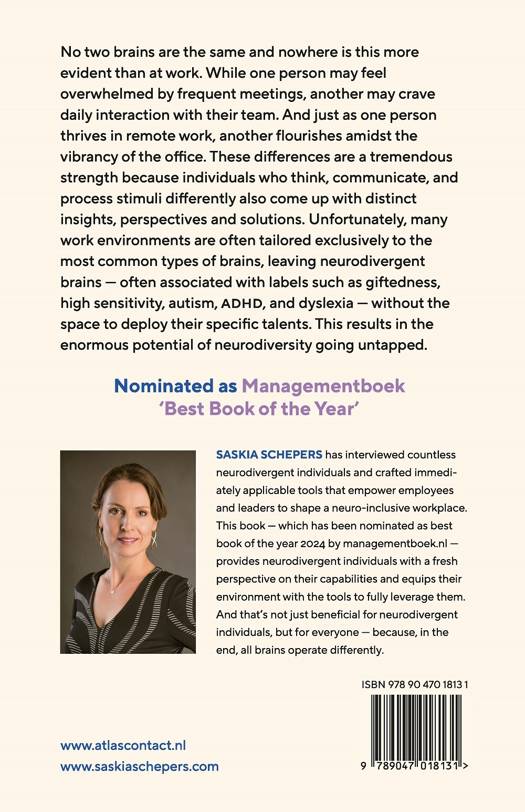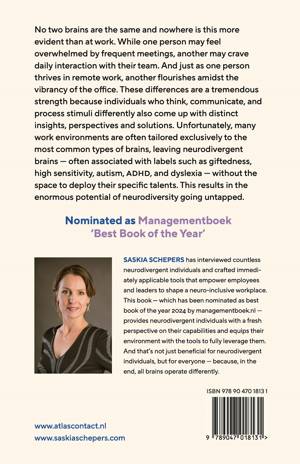
Je cadeautjes zeker op tijd in huis hebben voor de feestdagen? Kom langs in onze winkels en vind het perfecte geschenk!
- Afhalen na 1 uur in een winkel met voorraad
- Gratis thuislevering in België vanaf € 30
- Ruim aanbod met 7 miljoen producten
Je cadeautjes zeker op tijd in huis hebben voor de feestdagen? Kom langs in onze winkels en vind het perfecte geschenk!
- Afhalen na 1 uur in een winkel met voorraad
- Gratis thuislevering in België vanaf € 30
- Ruim aanbod met 7 miljoen producten
Zoeken
When all minds thrive
The competitive advantage of neurodiversity in the workplace
Saskia Schepers
Paperback | Engels
€ 24,99
+ 49 punten
Uitvoering
Omschrijving
No two brains are the same and nowhere is this more evident than at work. While one person may feel overwhelmed by frequent meetings, another may crave daily interaction with their team. And just as one person thrives in remote work, another flourishes amidst the vibrancy of the office.
These differences are a tremendous strength, individuals who think, communicate, and process stimuli differently also come up with distinct insights, perspectives and solutions.
Unfortunately, many work environments are often tailored exclusively to the most common types of brains, leaving neurodivergent brainsoften associated with labels such as giftedness, high sensitivity, autism, ADHD, and dyslexiawithout the space to deploy their specific talents. This results in the enormous potential of neurodiversity going untapped.
These differences are a tremendous strength, individuals who think, communicate, and process stimuli differently also come up with distinct insights, perspectives and solutions.
Unfortunately, many work environments are often tailored exclusively to the most common types of brains, leaving neurodivergent brainsoften associated with labels such as giftedness, high sensitivity, autism, ADHD, and dyslexiawithout the space to deploy their specific talents. This results in the enormous potential of neurodiversity going untapped.
Specificaties
Betrokkenen
- Auteur(s):
- Uitgeverij:
Inhoud
- Aantal bladzijden:
- 304
- Taal:
- Engels
Eigenschappen
- Productcode (EAN):
- 9789047018131
- Verschijningsdatum:
- 19/04/2024
- Uitvoering:
- Paperback
- Afmetingen:
- 151 mm x 229 mm
- Gewicht:
- 420 g

Alleen bij Standaard Boekhandel
+ 49 punten op je klantenkaart van Standaard Boekhandel
Beoordelingen
We publiceren alleen reviews die voldoen aan de voorwaarden voor reviews. Bekijk onze voorwaarden voor reviews.











